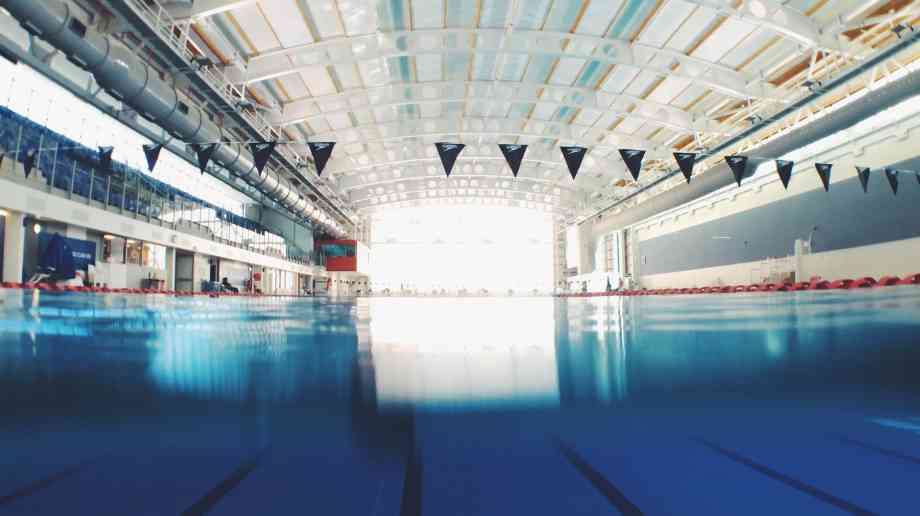Sue Robb of 4Children talks to Julie Laughton and Alison Britton from the Department for Education about the role of childminders in delivering the 30 hours free entitlement.
2,000 pools could be lost forever by end of decade

Swim England has warned that almost 2,000 swimming pools could be lost forever by the end of the decade unless the government and local authorities ‘act now’ to replace or refurbish ageing facilities.
A new report finds that there will be a huge reduction in the amount of water space available by 2030, which could threaten the future of aquatic sports in some areas and leave millions shut out of the activities they love. The shortage is based on pools which were constructed in the 1960s and 1970s and are coming to the end of their lifespan – while not enough new facilities are being built to replace them.
The A Decade of Decline: The Future of Swimming Pools in England report states that ‘if we continue on the current trend, the number of available pools in England will fall by 40 per cent by the end of the decade – down from the current 4,336 to around 2,468’.
Swim England is now backing calls for the government to commit to investing £1 billion into public leisure facilities to help refurbish existing pools – as well as building the new ones needed in the future. Part of this funding should be used so communities can apply for grants to get design and feasibility studies completed – the costs of which can currently be a barrier to pools being built.
Jane Nickerson, Swim England chief executive, said: “As we reflect on the amazing achievements of our swimmers, divers, artistic swimmers and para-swimmers this summer in Tokyo, it was heartening to hear so many reflect on the important role their local pool played in their sporting journey.
“Swimming pools are naturally essential to the future of all our aquatic sports if we are to nurture the next Adam Peaty, Tom Daley, Anna Hopkin or Maisie Summers-Newton. However, they are so much more than that.
“Without adequate investment into the new pools this country needs, we are forecasting a huge decline in the available water space by the end of the decade, threatening the future of our sports, leaving millions shut out of the activities they love and widening health inequities. The time to act is now.”
Gerald Vernon-Jackson, chairman of the LGA’s Culture, Tourism and Sport Board, said: “The findings in this report adds to our own recently published evidence highlighting that 72 per cent of schools rely on public swimming pools to teach children how to swim and water safety skills making them essential for delivering the national curriculum. Swimming is also an essential low-impact activity for older residents and those with joint or mobility issues, reducing the burden on the NHS and adult social care.
“Sixty per cent of swimming pools are past their expected lifespans or overdue refurbishment and account for up to 40 per cent of some councils direct carbon emissions. Alongside high running costs and financial constraints exacerbated by the Covid-19 pandemic, there is a real risk that we will lose these vital community assets. Capital investment for councils to redesign, upgrade and renovate facilities is urgently needed in the upcoming Spending Review to protect them and deliver on net zero targets.”
Company Focus
Located in Bromley, Japanese Knotweed Eradication Ltd has been providing solutions in the treatment and removal of Japanese Knotweed (Fallopia Japonica) for over a decade. During this time we have mastered a repertoire of methods, from herbicidal treatments to landscaping solutions, tailored to address the unique challenges our clients face with this pervasive weed.
Event Diary
UKREiiF has quickly become a must-attend in the industry calendar for Government departments and local authorities.
The multi-award-winning UK Construction Week (UKCW), is the UK’s biggest trade event for the built environment that connects the whole supply chain to be the catalyst for growth and positive change in the industry.
Supplier Profiles
Geo Energy
At GeoEnergy Design, we're on a mission to disrupt the traditional way heating and cooling ha
Latest Features
Professor Harith Alani, director of the Knowledge Management Institute at the Open University explains how AI can be used for good and bad.
Alex Lawrence, head of health & social care, techUK sets out techUK’s Five Point Plan for CareTech.

















